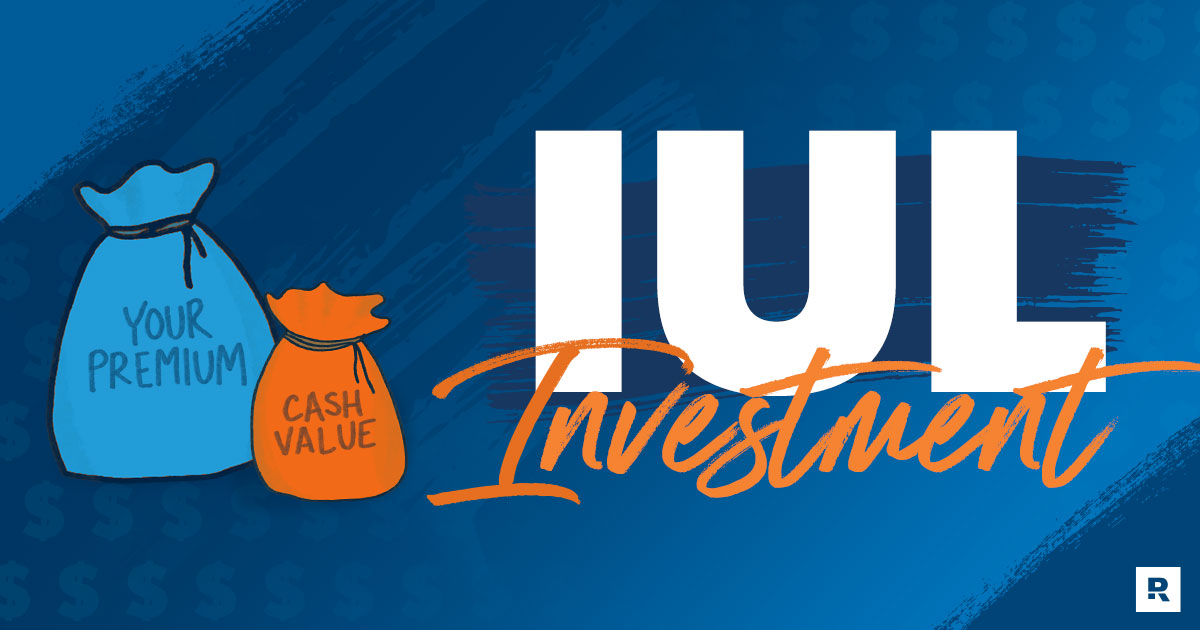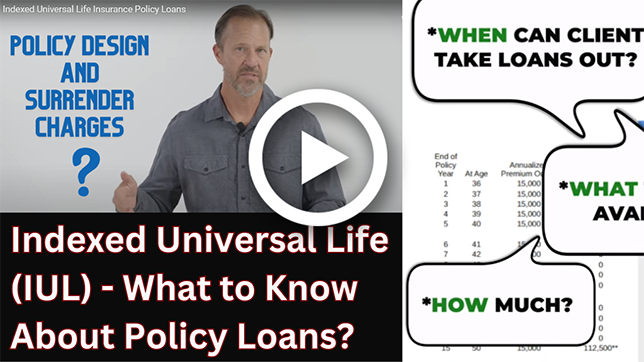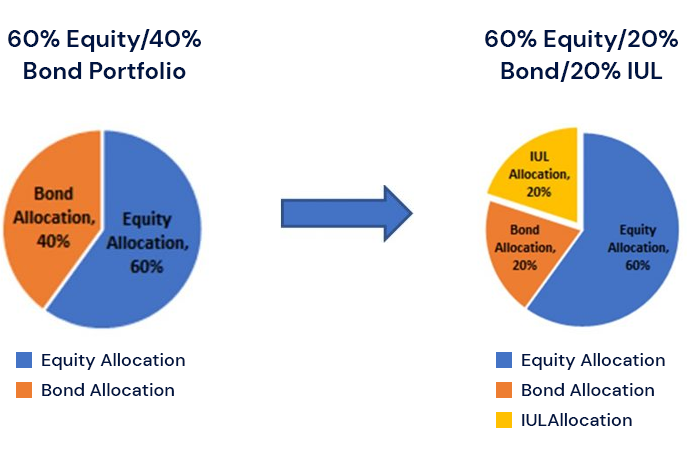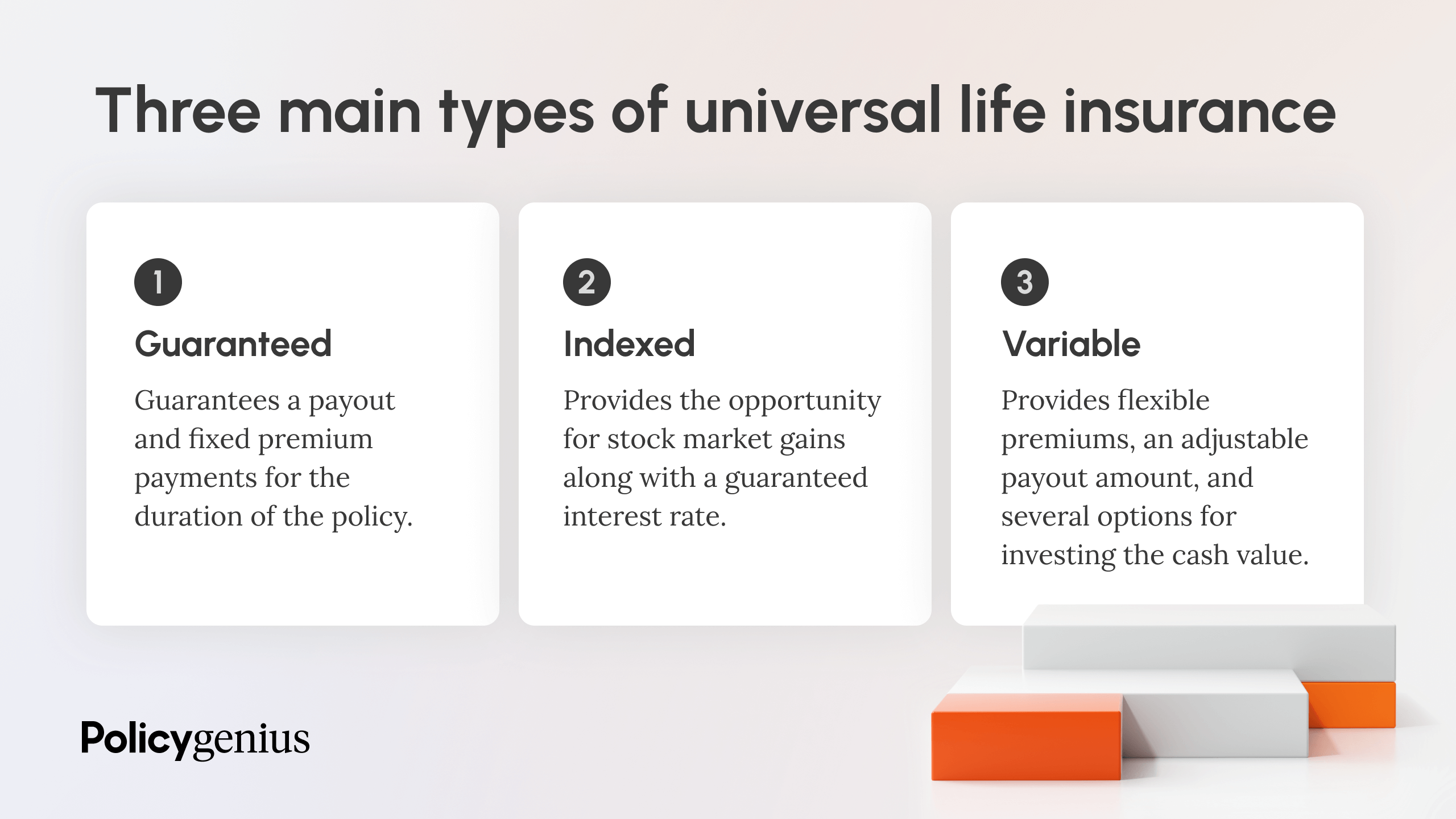All Categories
Featured
Table of Contents
In exchange for gaining a restricted amount of the index's development, the IUL will never obtain much less than 0 percent rate of interest. Even if the S&P 500 declines 20 percent from one year to the following, your IUL will not shed any type of money value as an outcome of the marketplace's losses.

Think of the passion compounding on an item with that kind of power. Given all of this information, isn't it conceivable that indexed universal life is an item that would allow Americans to acquire term and spend the remainder?
A true investment is a protections item that undergoes market losses. You are never based on market losses with IUL just since you are never subject to market gains either. With IUL, you are not purchased the marketplace, however just gaining rate of interest based on the efficiency of the marketplace.
Returns can grow as long as you proceed to make payments or maintain a balance.
Universal Premium Acceptance Corporation
Unlike universal life insurance policy, indexed global life insurance coverage's money worth makes interest based on the performance of indexed stock exchange and bonds, such as S&P and Nasdaq. Bear in mind that it isn't directly purchased the securities market. Mark Williams, Chief Executive Officer of Brokers International, points out an indexed global life policy resembles an indexed annuity that seems like universal life.

Because of these attributes, irreversible life insurance policy can function as a financial investment and wealth-building device. Universal life insurance coverage was developed in the 1980s when rate of interest were high. Like other kinds of permanent life insurance, this policy has a cash money worth. Universal life's cash money value earns interest based upon existing cash market prices, yet rates of interest fluctuate with the market.
Indexed universal life policies offer a minimum surefire passion rate, likewise recognized as a rate of interest attributing floor, which minimizes market losses. State your cash money worth sheds 8%.
Single Premium Indexed Universal Life Insurance
A IUL is a permanent life insurance plan that borrows from the residential or commercial properties of an universal life insurance plan. Unlike universal life, your money value grows based on the performance of market indexes such as the S&P 500 or Nasdaq.
Her job has been published in AARP, CNN Emphasized, Forbes, Ton Of Money, PolicyGenius, and United State News & World Record. ExperienceAlani has actually assessed life insurance policy and pet dog insurance provider and has written countless explainers on traveling insurance coverage, credit history, financial obligation, and home insurance. She is passionate about demystifying the complexities of insurance coverage and other personal money topics to make sure that readers have the details they need to make the finest money decisions.

Paying only the Age 90 No-Lapse Premiums will certainly assure the death advantage to the insured's achieved age 90 but will not ensure money worth build-up. If your customer ceases paying the no-lapse assurance premiums, the no-lapse feature will end prior to the ensured period. If this happens, added costs in a quantity equal to the shortfall can be paid to bring the no-lapse attribute back active.
I just recently had a life insurance coverage salesperson turn up in the remarks thread of a post I released years ago concerning not blending insurance policy and investing. He assumed Indexed Universal Life Insurance Policy (IUL) was the very best point because sliced bread. On behalf of his position, he posted a web link to an article created in 2012 by Insurance Representative Allen Koreis in 2012, qualified "16 Reasons Why Accountants Prefer Indexed Universal Life Insurance Policy" [web link no longer offered]
Universal Life Insurance Expires When
Initially a quick explanation of Indexed Universal Life Insurance Coverage. The attraction of IUL is evident. The property is that you (virtually) get the returns of the equity market, without any risk of losing money. Currently, before you diminish your chair making fun of the absurdity of that statement, you need to understand they make an extremely convincing disagreement, at the very least till you check out the details and understand you don't obtain anywhere near the returns of the equity market, and you're paying much way too much for the assurances you're getting.

If the marketplace decreases, you obtain the guaranteed return, generally something between 0 and 3%. Naturally, because it's an insurance coverage plan, there are likewise the typical expenses of insurance, compensations, and abandonment fees to pay. The details, and the factors that returns are so dreadful when mixing insurance and investing in this particular way, come down to basically three things: They only pay you for the return of the index, and not the rewards.
Iul Quote
Your maximum return is covered. So if you cap is 10%, and the return of the S&P 500 index fund is 30% (like last year), you obtain 10%, not 30%. Some policies just give a specific percentage of the adjustment in the index, state 80%. So if the Index Fund rises 12%, and 2% of that is returns, the adjustment in the index is 10%.
Add all these results with each other, and you'll find that long-lasting returns on index universal life are pretty darn near to those for entire life insurance, favorable, but reduced. Yes, these plans ensure that the cash money worth (not the cash that mosts likely to the costs of insurance policy, of training course) will not lose cash, however there is no assurance it will certainly stay on par with inflation, much less grow at the rate you require it to expand at in order to offer your retired life.
Koreis's 16 factors: An indexed global life policy account worth can never ever lose cash due to a down market. Indexed global life insurance warranties your account worth, securing in gains from each year, called a yearly reset.
IUL account values grow tax-deferred like a certified plan (Individual retirement account and 401(k)); common funds don't unless they are held within a qualified plan. Just placed, this indicates that your account value advantages from three-way compounding: You earn passion on your principal, you make interest on your interest and you earn passion on the money you would certainly otherwise have actually paid in tax obligations on the interest.
What Is Iu L
Qualified strategies are a far better choice than non-qualified plans, they still have issues not offer with an IUL. Financial investment choices are normally restricted to shared funds where your account worth undergoes wild volatility from direct exposure to market threat. There is a large difference between a tax-deferred retirement account and an IUL, however Mr.
You buy one with pre-tax bucks, saving money on this year's tax obligation bill at your marginal tax obligation rate (and will typically have the ability to withdraw your money at a reduced efficient price later on) while you spend in the other with after-tax dollars and will be required to pay rate of interest to obtain your very own money if you don't intend to give up the plan.
After that he throws in the classic IUL salesperson scare method of "wild volatility." If you hate volatility, there are much better methods to lower it than by acquiring an IUL, like diversification, bonds or low-beta supplies. There are no limitations on the amount that might be added annually to an IUL.

Why would the government placed limitations on just how much you can place right into retirement accounts? Maybe, just possibly, it's because they're such an excellent deal that the federal government does not want you to save too much on tax obligations.
Latest Posts
Iul Insurance Meaning
Iul Life Insurance Calculator
Universal Life Calculator